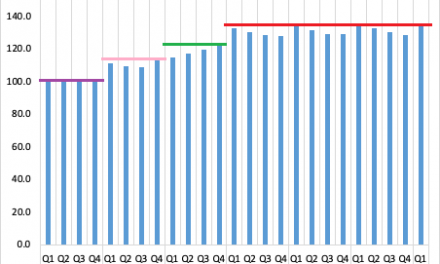
Gender violence is just as much an economic issue as a social one
Namibia is in the grip of what the Minister of Finance called “moral decay” in her budget statement delivered before Parliament earlier this month.
The reference to the social ills of our society in a budget statement caught me slightly off guard. It was the first time ever, in the 23 budgets that I tracked, to find mention of a social evil in a finance minister’s speech. (in the first year of Independence, there was no independent budget giving us 23 budgets since 1991)
It is not entirely unknown for finance ministers to mention the social side of budget design and implementation. Over the past few years, the minister has often referred to budget strategies saying these must be pro-poor, must make a difference in the lives of ordinary people, or must support the elderly and the vulnerable.
These are all social issues where the budget and the allocation of resources, have a direct impact on the direction our society takes while it develops. Likewise, her predecessors, often mentioned inequality, land ownership, gross distortions, and other issues that also have a direct link to the social development paradigm. But never before have I heard a minister include Social Decay in the list of social and economic challenges that must be managed and countered.
This made me suspect, the issue of our moral fibre is discussed at the highest level, and with an appreciable measure of concern.
Earlier this week, I was quite surprised when a Cabinet Circular announced that this Thursday will be dedicated to a day of National Prayer to bring gender violence into the spotlight, and to ask for the support of a myriad of organisations that operate in the social sphere. I was even more surprised when our journalist returned to the office showing us the images of the huge crowd that has gathered over lunchtime on Thursday at the Sam Nujoma Stadium to participate in the public prayer event.
The stadium was filled to capacity with well-wishers and dedicated (and concerned) Namibians, each contributing in his or her small way, to heed the call for prayer.
I remember earlier this month there was a call by Women’s Action for Development to declare a state of emergency over the pervasive gender violence of which one reads and hears literally every week in the mainstream media.
I also received a report by media monitoring company, NaMedia, giving a very exact analysis of the extent to which gender violence was covered in print and broadcast media since 2009. These figures are actually very shocking.
Needless to say, there are those who downplay gender violence saying it is only because we have such a free press, that almost all incidences now feature on the public horizon, but I tend to disagree. From my own observation, it seems gender violence, or violence against vulnerable people, has only recently jumped to the top of the list of criminal acts of one individual against another.
Gender violence has reached epidemic proportions. First, it limits the freedom and civil liberties of two groups in particular, women and children. Secondly, as an infringement of a human right, it violates those rights as enshrined and protected in our Constitution. and thirdly, it is downright criminal.
Elsewhere in this edition, an opinion from a member of the public on gender violence, contained some horrible suggestions on what to do with gender violence offenders. These we had to edit out, for the solutions offered, are in themselves criminal and against the Constitution. But it did serve to make us aware how far-reaching the impact and damage of gender violence is.
Violence against any other human is an offence under Namibian law but I think it is just natural to assume that the average young male should be able to defend himself against most forms of violence, even if it is only to run away. Not so for women, children and the elderly. They can most often not defend themselves or run away. I also sense that when a man attacks a woman or a child, there is a large dose of anger and retribution that comes into play. Hence such an attack is often emotional and irrational.
It is highly disturbing to come to the conclusion that we have slowly created a society that harbours a sufficient number of violent criminals, so that the community at large no longer feels safe.
I think this will still prove to be one of the more daunting challenges on the minister’s list. And I want to remind those who do not care, that the cost of not containing social violence, will be borne in future budgets.










































